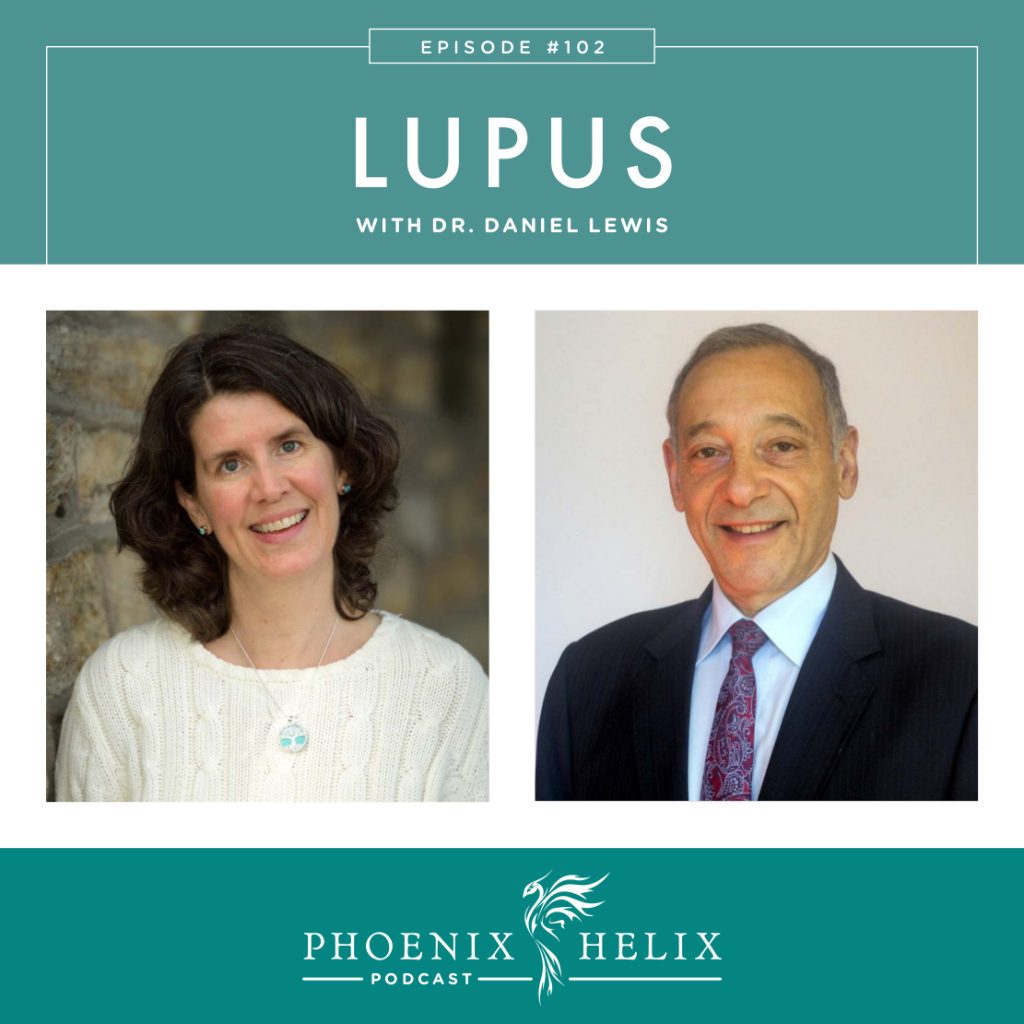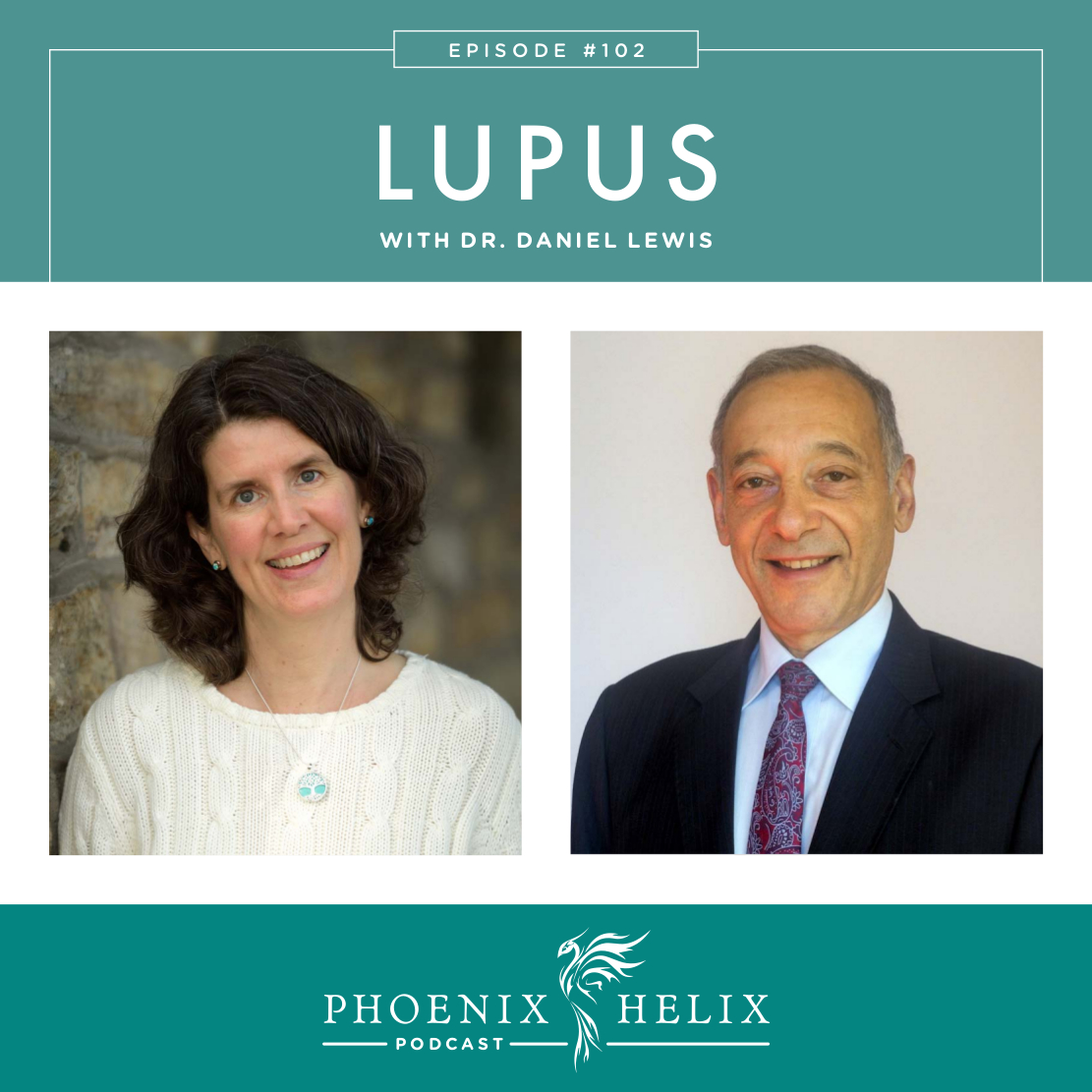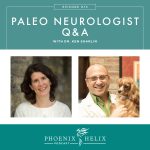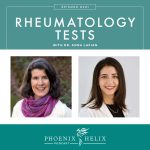
Lupus Spotlight
With autoimmune disease, we all have more in common than not, with similar root causes and similar treatments. That’s why most of my episodes speak to general topics that can help us all. But occasionally I do diagnosis spotlights, taking a deep dive into one specific autoimmune disease or a category of autoimmune disease. Episode 27 focused on Hashimoto’s disease, Episode 49 on Rheumatoid Arthritis, Episode 75 on Neurological Autoimmune Conditions, and Episode 83 on Inflammatory Bowel Disease. Today, we’re focusing on Lupus, and my guest is Dr. Daniel Lewis, a rheumatologist practicing in Melbourne, Australia. He was one of the first integrative rheumatologists in the world and has 25 years of experience combining the best that conventional, alternative, and nutritional medicine has to offer.
Listen to the Show
- Subscribe to my podcast through your favorite podcast app: iTunes, Stitcher, Google, TuneIn, Spotify, Amazon, etc.
- You can also listen to the episode right here through the player below, and if you subscribe to my newsletter you’ll get notified of future episodes.
Podcast: Play in new window | Download
Show Notes
- Intro (0:00)
- Welcoming a New Podcast Sponsor – Luminance Skincare (1:40)
- The average adult in the United States uses 9 personal care products daily, containing over 100 unique chemical ingredients. What you may not know is that your skin absorbs those chemicals. Some medications are even prescribed as patches, because the skin is such an effective path to the bloodstream.
- That’s why I love Luminance. Their products are natural, organic, wildcrafted, non-GMO, and gluten-free. Whereas conventional skincare products are full of chemicals that can hurt our bodies, Luminance is made from ingredients that nourish.
- They have a complete face care and body care line, including cleansers, moisturizers, toner, acne serum, and more. They offer sample kits of their most popular facial products: Delicate Cleanser, Rosewater Toner & Deep Hydration Moisturizer.
- They even sell a natural sunscreen. Made from just 4 ingredients, it uses the absorption characteristics of Red Raspberry Seed Oil to naturally and safely screen more than 98% of UVA and UVB rays. It would take an SPF rating of at least 35 to match this performance. How cool is that?
- Place an order here, and use the code HELIX for 10% off your first order.
- Meet Dr. Lewis (3:47)
- Dr. Daniel Lewis is an integrative rheumatologist practicing in Melbourne, Australia, with over 25 years of experience. His passion is integrating lifestyle strategies into the mainstream management of autoimmune and pain conditions. He was one of the first integrative rheumatologists in the world, doing research into the impact of diet and lifestyle back in the 80’s. He’s also an associate lecturer in the Department of Medicine at Monash University.
- He was introduced to Traditional Chinese Medicine and Ayurvedic Medicine early in his career, which broadened his approach beyond his conventional medical training. However, the conventional training has been valuable as well, and his specialty is combining these approaches to best serve his patients.
- What Is Lupus? (6:43)
- Lupus is a multi-system autoimmune disease, and it can affect almost every part of the body, including joints, skin, muscles, and organs. It’s unclear what exactly is being targeted to elicit such a wide-ranging response. For this reason, it can be difficult to diagnose, because symptoms overlap with many other conditions. That said, the kidneys are commonly attacked with lupus, so that’s a potential indicator.
- How Is Lupus Diagnosed? (9:38)
- Diagnosis is an art form, and it requires putting a lot of puzzle pieces together and finding some of the hidden clues.
- If you are an undiagnosed patient who is experiencing diverse symptoms, bring a detailed symptom list to your doctor, including when they started, in what order they appeared, how frequently they happen, and how severe. A health history is essential to a correct diagnosis, and the more specific information you can offer your doctor, the better the chance of an accurate diagnosis. (Resource: How to keep a symptom journal.)
- While there is no one test that can diagnose lupus, helpful ones include ANA (which tests for antibodies) and CRP & Sed Rate (which test for overall inflammation but are often “normal” in patients with lupus). Standard blood and urine tests provide information on inflammation as well. For example, Dr. Lewis looks at blood and protein in the urine, hemoglobin levels, liver enzymes, and other factors. However, tests are secondary. The health history is primary when it comes to diagnosing lupus. (Resource: Test list.)
- 80% of those diagnosed are female.
- How Is Lupus Traditionally Treated? (16:55)
- Medication is used to “biohack” the immune system and dampen inflammation. There are 5 classes of drugs that can be used:
- NSAIDs (i.e. naproxen and ibuprofen)
- Corticosteroids (i.e. prednisone and prednisolone)
- Anti-malarial (i.e. hydroxychloroquine/Plaquenil)
- Immunosuppressents (i.e. methotrexate, Imuran, cyclophosphamide)
- Biologics (i.e. Benlysta)
- Medication is used to “biohack” the immune system and dampen inflammation. There are 5 classes of drugs that can be used:
- How Does Diet Impact Autoimmune Disease? (20:47)
- Diet changes our gut microbiome, and since so much of the immune system lives in the gut, this can have a major impact on autoimmune health.
- The first study on nutrition and inflammation was conducted in the 1950’s, and it showed that fasting followed by a plant-based diet reduced inflammation.
- Dr. Lewis did an experiment in his own clinic 20 years ago with a diet very similar to the paleo autoimmune protocol. The patients who participated had rheumatoid arthritis. Over the course of 6 weeks, they experienced a 70% reduction in inflammation. Unfortunately, after the study, most of the patients found it too difficult to continue the diet. That’s changing. Now, he has many patients who are interested in making diet & lifestyle changes.
- More recent studies include:
- Terry Wahls research into The Wahls Protocol for multiple sclerosis.
- The AIP for patients with IBD, in which 73% of patients reached remission.
- What Lifestyle Practices are Most Beneficial for Autoimmune Health? (24:48)
- Dr. Lewis developed a program in his clinic called Pathways to Wellbeing. It includes 12 lifestyle interventions to maximize health:
- Mind-Body Awareness
- Physical Exercise
- Flexible Body, Flexible Mind
- Optimal Nutrition
- Breath Awareness
- Stress Release
- Meditation
- Environmental Awareness
- Power of the Group
- Being Creative
- Service to Others
- Being Intentional
- Dr. Lewis developed a program in his clinic called Pathways to Wellbeing. It includes 12 lifestyle interventions to maximize health:
- Thank You to Our Podcast Sponsor – Paleo on the Go (35:28)
- A frozen meal delivery service, 100% of their menu is compliant with the elimination phase of the paleo autoimmune protocol (AIP). They have over 5o items, including entrees, side dishes, broth, AIP-friendly bacon, and desserts.
- Use the code PHOENIX for 10% off your first order.
- Functional Medicine Testing and Lupus (36:50)
- When it comes to testing, Dr. Lewis carefully analyzes the benefit vs. cost. He’s very respectful of the financial burden of chronic illness.
- Heart rate variability is an inexpensive way to measure the body’s stress response and see the impact of lifestyle strategies on a day-to-day basis. There are now smartphone apps that can provide this feedback.
- Omega 3:6 levels are strongly correlated with lupus outcomes. For that reason, this is a valuable test to run. Omega 3 fatty acids are the anti-inflammatory fatty acids found in fish. Omega 6 fatty acids are found in vegetable oil and grain-fed meat, and they can be inflammatory. An ideal blood ratio is 1:1. In the mainstream population, it’s closer to 1:25. An AIP diet moves the ratio in a positive direction. Supplements can help as well.
- For individuals who have been exposed to toxic environments, he might suggest heavy metal testing.
- He expects to do more microbiome testing in the future, as research grows.
- Fasting glucose levels are also very closely related to patient outcomes. This is a standard test normally covered by insurance.
- 3 Favorite Supplements for Lupus (42:10)
- Before recommending supplements, Dr. Lewis highlights 3 things that should be part of everyone’s diet: water, vegetables, and extra-virgin olive oil.
- His top recommended supplements:
- Omega 3 Fatty Acids. To move the omega 3:6 ratio in a beneficial direction.
- Curcumin. It has many anti-inflammatory benefits.
- Vitamin D. Sun sensitivity is common with lupus, which is why supplementation is often indicated.
- Medication Decisions (46:36)
- Together with his patients, Dr. Lewis measures the benefits and risks of medication against the severity of lupus symptoms.
- With mild lupus symptoms, he’s supportive of trying diet and lifestyle alone, so long as they monitor inflammation closely.
- However, for people with more severe symptoms, he doesn’t recommend they go completely medication-free. He likens it to driving without a seat belt. If a flare happens, it can escalate very quickly, and with lupus, organ damage can result. He recommends people stay on hydroxychloroquine/Plaquenil. It’s one of the safest medications with rare incidents of side effects, and a documented benefit of reducing risk of lupus flares.
- If someone is on medication and starts implementing positive diet and lifestyle changes, he helps them slowly wean down their medication to a minimal level. The first medication he tries to reduce is corticosteroid medication, since there are so many negative side effects. Some people are able to get off this medication altogether. The exception are those with kidney damage (who are at risk of kidney transplant if they have another severe flare). Dr. Lewis then recommends a low minimum dose of corticosteroids to help keep inflammation at bay.
- If you have a lot of anxiety about taking medication, hypnotherapy can be a powerful technique for uncovering the root of the anxiety.
- Do You Need to Follow a Healthy Diet & Lifestyle If You’re In Remission? (1:01:00)
- While it’s tempting to want to take a vacation from self-care practices, now is the time when you have the energy to really focus on them. So, Dr. Lewis recommends increasing self-care at this time, focusing on all of the Pathways to Wellbeing. That’s the best support for maintaining remission.
- Outro (1:04:18)
- Dr. Daniel Lewis has 2 websites: one for his clinical practice and one for patient education. He lives in Melbourne, Australia, and is accepting new patients locally. He also consults with people worldwide over Skype. He also has a self-paced meditation course available through his education website.
- Eileen (your podcast host) is the author of multiple books, written to help people thrive with autoimmune disease. Learn more on the Books Page.
- If you like this podcast, follow or subscribe through your favorite podcast app. You can also subscribe to Eileen’s biweekly newsletter.
- Check out the entire archive of podcast episodes.
You May Also Be Interested In
Spreading the Word
If you like the podcast, please leave a positive review in iTunes. It would mean the world to me, and also helps others find the podcast. Here are some quick instructions using your iPhone:
- If you are already subscribed to my podcast: (1) Click the purple podcast icon. (2) At the bottom of the screen, click Library. (3) At the top of the screen, click Shows. (4) Click the Phoenix Helix podcast image. (5) Scroll down the page, and you’ll see Ratings and Reviews. Scroll down a little bit more and click on Write a Review. This will bring up the review screen. Tap 5 stars (if you love the podcast), and then click in the title box, and it will bring up the keyboard. Enter a title and short review. (6) Click Send in the upper right corner. (7) Thank you! Positive reviews give the podcast a higher search ranking in iTunes, helping people find it and letting them know it’s a quality podcast and worth their time to listen.
- If you haven’t subscribed to my podcast: (1) Click the purple podcast icon. (2) In the lower right corner, click the magnifying class. (3) Type Phoenix Helix in the search box. (4) Click the podcast cover in the Show list. (5) If you’d like to subscribe, click the + sign at the top of the screen. (6) To write a review, scroll down the page, and you’ll see Ratings and Reviews. Scroll down a little bit more and click on Write a Review. This will bring up the review screen. Tap 5 stars (if you love the podcast), and then click in the title box, and it will bring up the keyboard. Enter a title and short review. (7) Click Send in the upper right corner. (8) Thank you! Positive reviews give the podcast a higher search ranking in iTunes, helping people find it and letting them know it’s a quality podcast and worth their time to listen.








